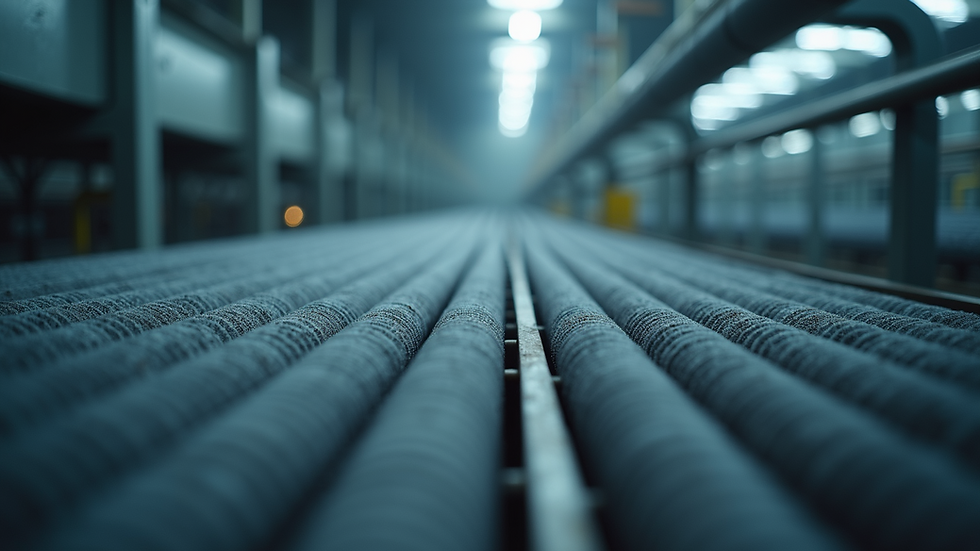Optimizing Industrial Evaporation Systems
- cemnar0
- Sep 22, 2025
- 3 min read
Evaporation technology plays a critical role in chemical, petrochemical, refining, and LNG industries. It enables concentration, separation, and purification processes essential for operational efficiency and sustainability. Optimizing these systems requires a precise approach that balances energy consumption, throughput, and environmental impact. I will guide you through practical strategies and technical insights to enhance your evaporation processes using efficient evaporation technology.
Understanding Efficient Evaporation Technology
Efficient evaporation technology focuses on maximizing heat transfer while minimizing energy use and emissions. It involves advanced design principles, materials, and control systems that improve the overall performance of evaporators. Key components include:
Heat exchangers with optimized surface area and flow dynamics.
Multiple-effect evaporators that reuse vapor energy.
Mechanical vapor recompression (MVR) to recycle latent heat.
Automated control systems for precise operation.
For example, multiple-effect evaporators reduce steam consumption by using vapor from one effect to heat the next. This cascading effect significantly lowers fuel costs and carbon emissions. Mechanical vapor recompression further enhances efficiency by compressing vapor to a higher temperature and pressure, allowing it to replace fresh steam input.

Heat exchanger tubes in an industrial evaporator optimize heat transfer efficiency.
Key Factors to Optimize Industrial Evaporation Systems
Optimizing evaporation systems requires attention to several critical factors:
1. Heat Transfer Efficiency
Heat transfer is the core of evaporation. Fouling, scaling, and corrosion reduce heat transfer rates and increase energy consumption. Regular cleaning and material selection are essential. Use corrosion-resistant alloys and coatings to extend equipment life and maintain performance.
2. Energy Integration
Integrate evaporation with other plant processes to recover and reuse energy. For instance, use waste heat from exothermic reactions or cooling systems to preheat feed streams. This reduces the demand for fresh steam and lowers operational costs.
3. Process Control and Automation
Implement advanced sensors and control algorithms to maintain optimal temperature, pressure, and flow rates. Automated systems can adjust parameters in real-time to respond to feed variability and prevent operational upsets.
4. Capacity and Throughput
Match evaporator size and configuration to process requirements. Oversized units waste energy, while undersized units limit production. Modular designs allow capacity expansion without major downtime.
5. Environmental Compliance
Ensure emissions and effluents meet regulatory standards. Use closed-loop systems and vapor recovery units to minimize volatile organic compound (VOC) release. Efficient evaporation technology supports sustainability goals by reducing carbon footprint.

Chemical plant with multiple evaporator units operating in parallel for optimized throughput.
Implementing Advanced Solutions for Process Improvement
To achieve peak operational performance, consider these advanced solutions:
Sulzer Chemtech’s EvapCare Evaporators: These systems combine robust design with efficient heat transfer and energy-saving features. They support circular economy practices by enabling solvent recovery and waste minimization.
Hybrid Evaporation Systems: Combine thermal and membrane technologies to enhance separation efficiency and reduce energy use.
Real-Time Monitoring: Use IoT-enabled sensors to track performance metrics and predict maintenance needs, reducing downtime and extending equipment life.
Customized Engineering: Tailor evaporator design to specific feed characteristics and process goals. This ensures maximum efficiency and reliability.

Control room with real-time monitoring of evaporation system parameters for process optimization.
Practical Recommendations for Daily Operations
Optimizing evaporation systems is not a one-time task. It requires continuous attention and proactive management. Here are actionable steps:
Schedule regular maintenance to clean heat transfer surfaces and inspect mechanical components.
Train operators on best practices and emergency procedures.
Monitor energy consumption and compare it against production output to identify inefficiencies.
Implement process audits to evaluate system performance and identify improvement opportunities.
Invest in upgrades such as improved insulation, variable frequency drives, and advanced control systems.
By following these recommendations, you can reduce operational costs, improve product quality, and support sustainability initiatives.
Driving Operational Excellence with Sulzer Chemtech Solutions
Optimizing industrial evaporation systems is essential for achieving operational excellence in demanding industries. Sulzer Chemtech Process Solutions offers cutting-edge technology designed to maximize efficiency, reduce emissions, and enable circular economy practices. Their expertise and innovative products help industries meet stringent environmental regulations while boosting profitability.
Adopting efficient evaporation technology is a strategic investment. It enhances process reliability, lowers energy consumption, and supports long-term sustainability goals. By integrating advanced design, automation, and energy recovery, you position your operations for future success.
Optimizing evaporation systems requires a clear focus on heat transfer, energy integration, and process control. Leveraging advanced solutions and continuous improvement practices ensures your plant operates at peak performance. Efficient evaporation technology is not just a tool - it is a pathway to sustainable, profitable chemical processing.



